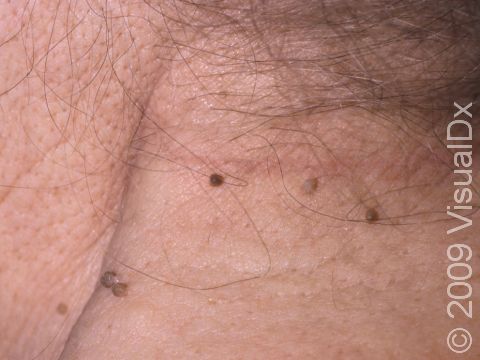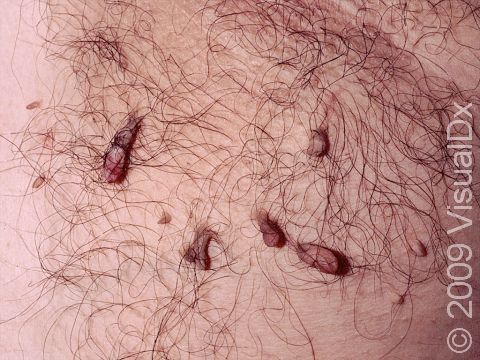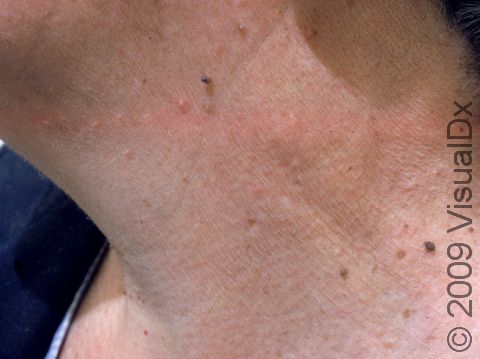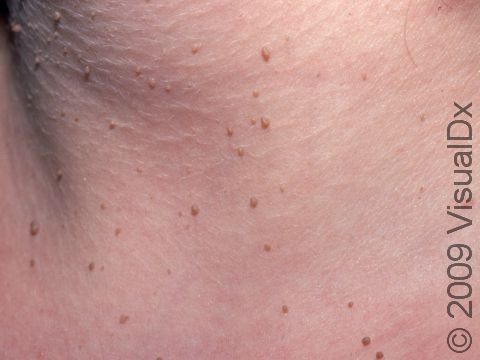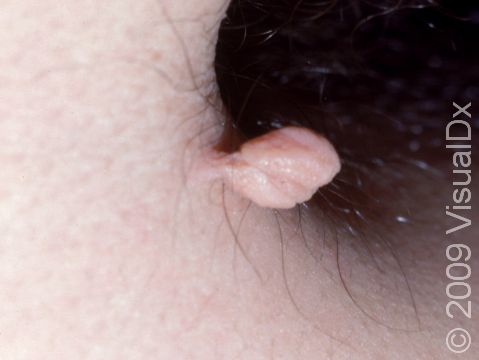Skin Tag (Acrochordon)
A skin tag (acrochordon) is a common condition that appears as a small, soft skin growth, often on a thin stalk. Skin tags are often found on areas of frequent friction, such as the eyelids, neck, underarms, and groin. They are harmless, but they can sometimes become irritated from rubbing on clothing or jewelry, for example.
Who's At Risk?
Skin tags are very common, especially in older adults. They are often seen in individuals who are pregnant, have diabetes, or who are obese. Skin tags can occur in anyone of any race / ethnicity, and men and women are affected equally.
Signs & Symptoms
Skin tags are most commonly found on the eyelids, neck, underarms, and groin area. They are often skin colored and may be light or darker brown. These growths are often on a thin stalk and range in size from 1-6 mm. There may be one or more skin tags. Skin tags may become inflamed, painful, and can even turn black and fall off if twisted or otherwise traumatized.
Self-Care Guidelines
No self-care is necessary. Do not try to remove skin tags yourself.
Treatments
Skin tags may be removed by a medical professional by:
- Snipping with scissors.
- Freezing with liquid nitrogen (cryosurgery).
- Burning off with electrical current (electrodesiccation).
Visit Urgency
Skin tags are harmless, so no treatment is necessary. However, you should seek evaluation from a medical professional if you have a new skin growth, if a skin tag becomes irritated or painful, or if you would like a skin tag removed for cosmetic purposes.
Trusted Links
References
Bolognia J, Schaffer JV, Cerroni L. Dermatology. 4th ed. Philadelphia, PA: Elsevier; 2018.
James WD, Elston D, Treat JR, Rosenbach MA. Andrew’s Diseases of the Skin. 13th ed. Philadelphia, PA: Elsevier; 2019.
Kang S, Amagai M, Bruckner AL, et al. Fitzpatrick’s Dermatology. 9th ed. New York, NY: McGraw-Hill Education; 2019.
Last modified on June 14th, 2024 at 2:25 pm
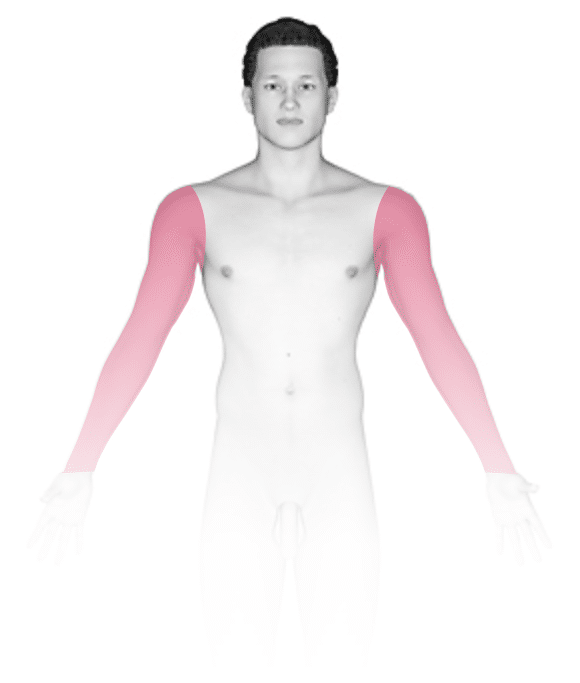
Not sure what to look for?
Try our new Rash and Skin Condition Finder
